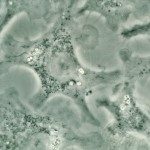Link to Pubmed [PMID] – 25319788
Methods Mol. Biol. 2015;1237:149-211
Critically ill patients who display a systemic inflammatory response syndrome (SIRS) are prone to develop nosocomial infections. The challenge remains to distinguish as early as possible among SIRS patients those who are developing sepsis. Following a sterile insult, damage-associated molecular patterns (DAMPs) released by damaged tissues and necrotic cells initiate an inflammatory response close to that observed during sepsis. During sepsis, pathogen-associated molecular patterns (PAMPs) trigger the release of host mediators involved in innate immunity and inflammation through identical receptors as DAMPs. In both clinical settings, a compensatory anti-inflammatory response syndrome (CARS) is concomitantly initiated. The exacerbated production of pro- or anti-inflammatory mediators allows their detection in biological fluids and particularly within the bloodstream. Some of these mediators can be used as biomarkers to decipher among the patients those who developed sepsis, and eventually they can be used as prognosis markers. In addition to plasma biomarkers, the analysis of some surface markers on circulating leukocytes or the study of mRNA and miRNA can be helpful. While there is no magic marker, a combination of few biomarkers might offer a high accuracy for diagnosis.

